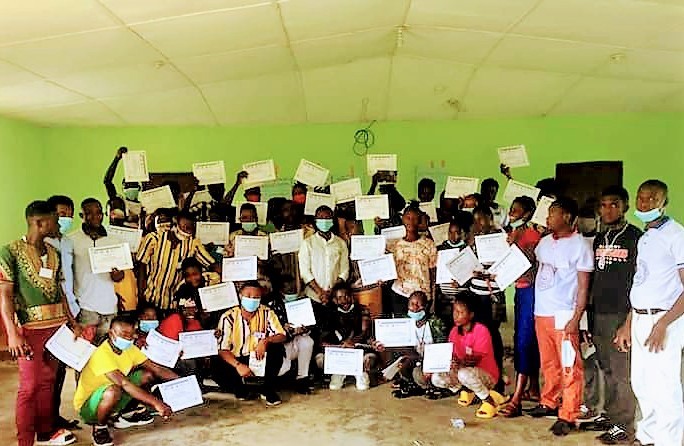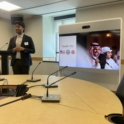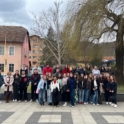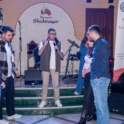Abdulaziz reflects on the highlights from serving as a mentor for CEW.
STORIES
YES Alumni Grant: Income Generation through Agriculture
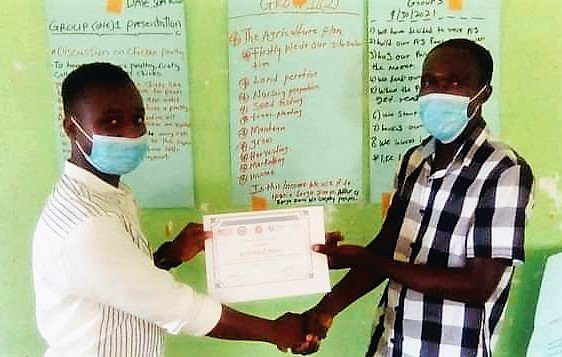
By Robert B. Freeboy (YES 2017-2018, Liberia, placed by YFU in Franklin, TN)
In 2017, I was fortunate to be selected as a finalist for the YES program. This moment transformed my life greatly. The YES program connects the world, allowing students to live with an American host family, attend an American high school, learn American culture, and share their culture with others. While in the U.S., I stayed with the Frodden family. They were awesome and caring people, always willing to help me out when I didn’t understand something. They took me to beautiful places, like Disney World in Florida and downtown Nashville. I attended Centennial High School in Franklin, TN. At Centennial, I made a lot of friends with whom I’m still in contact today. I sang in the school choir, played soccer, ran cross country, and volunteered as a student coach on the basketball team. My teachers were always ready to help whenever I didn’t understand the lesson. The YES program completely shaped my life and changed me from a self-centered person to someone involved with community service, youth empowerment programs, and educating my peers on environmental issues and how we can contribute to solving them.
I was moved to apply for a 2021 YES Alumni Grant because I observed that, in my community of Salayea Town in Lofa County, most youth struggle to pay their school fees and most who have graduated high school are unemployed as there are no vocational schools or colleges in the area. Therefore, I began planning a self-sustainability workshop to educate these youths on how to use available resources (i.e. our land and farming skills) to generate income. Salayea has very fertile soil, and since it is very rural, we don't have to pay for land to plant our crops. All we must do is select the site and inform the Town Chief.
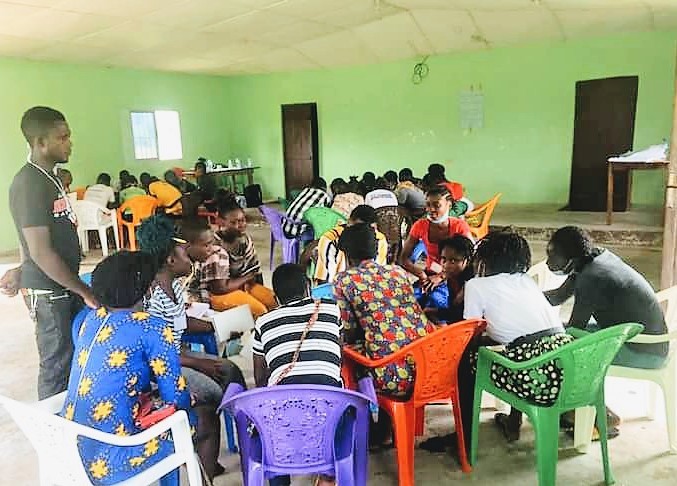
My grant project was a five-day workshop that taught self-sustainability through agriculture to 50 youths, ages 18 to 38, who face financial difficulties in paying their school fees or who are unemployed. My project team members and partner organization, Partners for Sustainable Development, all contributed to preparing lessons on a variety of agricultural topics. Participants were also given lots of time for questions and cementing what they’d learned through breakout group discussion and review.
The outcome of the project was very encouraging. The participants were excited to make use of the knowledge they had gained and start their own gardens. One participant noted, “Since I graduated from high school, I have been sitting and doing nothing. I did not want to go into agricultural activities because it felt like hand-to-mouth living. But with the education I have gotten from this workshop, I am motivated to give it a try!”
The long-term hope for this project is that, in the next one or two years, our participants will supply much of the grain, meat, beans, cocoa, palm oil, and other agricultural products at the local market, generating income for themselves and their families to help improve their livelihood. My team and I are planning a one-day event in about a year, where project participants will share about the activities they have been involved with since the workshop.
This project was one of my greatest achievements. It improved my communication skills and provided me the opportunity to learn a lot about self-sustainability. It also strengthened my skills for working with people from diverse backgrounds and taking responsibility for my tasks.
My team and I want to extend all of our thanks and appreciation to the U.S. Department of State, Bureau of Educational and Cultural Affairs, the YES program, iEARN-Liberia, Partners for Sustainable Development, our partner schools, and all of our workshop participants.
